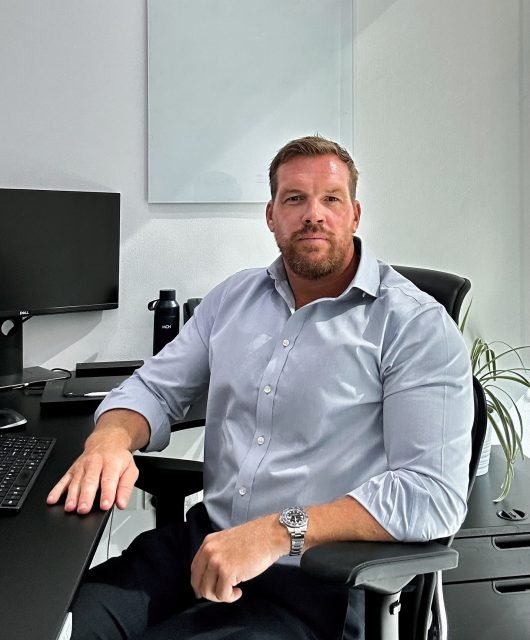A Reflection on the First Moment of truth… what you know & what you think you know?!, By Sally El Akkad
It is normal that you say that your service or product is good, but how would I know “as a consumer” that it is actually good? I will not buy a cell phone every day, I will not buy a washing machine everyday… I can take relative risk in snacks, but the same concept won’t apply to majority of people in higher value products.

Every marketer wants to change consumer behavior, but would it really work by just pushing more? Honestly, I don’t think so. Classically speaking, when you push someone they will push back as a first automatic reaction, then you wonder why this person hadn’t change? why didn’t they listen to your argument even if it makes sense?!
There is a whole world around a brand, and the consumer is standing outside of its boundaries looking into it with both skepticism and curiosity. Thus, if you want to induce reaction; you will need to build on personal preferences and liaise them to the story being told around the brand and its genuine DNA.
So, if you want your friend to listen to you, ask yourself; will he/she listen because you said so or he/she wants to? Will the car move faster by putting more fuel in it? Absolutely no. Similarly, Does the consumer buy your product because you want him to buy or because they want to buy, and you persuade them and show them why they need it.
People are creatures of habit, their ideas, their preferred hangout spots, preferred clothes, and preferred products. Thus, why would someone change if their status quo is already fulfilling?!
Years back, I used to work in the insurance industry “the 2nd hardest sale in the world”– why would people bear certain costs upfront and explore the reality of the product/ service purchased later?
The whole discussion should be around consumer needs; why you need this and what it means to your beloved one’s security and your own future prosperity. The whole idea is about paying a small amount now to mitigate future hazards/risks. Thus, let us look at the problematic thinking now, why would a person buy maybe they are Looking for gain, or trying to avoid loss.
I would see it in a way that both buying triggers lead to Peace of mind anyways, you can call it identifying consumer purchase triggers, identify consumer touchpoints but it needs to start with a more profound question; why would someone buy your product and change their buying habits? What is the cost vs. benefit gap you are planning to bridge? What is the “switching cost” that a consumer will bear?
I want you to think about this notion; you have a good product, a good company, a good plan, you want to make a change, you want to derive consumer value, and you want to increase stockholders value. Then, you find that it is not like sailing in a river, it is a sea full of expectations and lot of fish (other companies with similar notions), and when you realize that it is a sea and not a river – in other terms it is a red ocean – and you should be ready to fight and get the attention of consumer within all the clutter.
Is it enough to have a great product? by my experience… No.
The product itself doesn’t tell its own story. That is why commercial structure exists, you misunderstand the responsibility on our shoulders by not being clear about the DNA of that product; why is it here? What difference would it make? What consumer promise it gives? And does it deliver on that promise?
It is even more complicated talking about services, in which the human element is more prominent, and the risk of standardization is questionable. Do you realize what is like having a fleet of 200 human beings “can be 2000 or more in service based industries” who should give the exact same experience to consumers no matter how different or diversified their backgrounds… that is super challenging! And I truly respect the capability of leaders who can bring teams harmony and sync it with a standardized delivery.
In a world that is constantly evolving and always disrupted by innovation, we need to know if we have the business acumen that enables us to understand ourselves, our companies, and our consumers’ evolving needs. What is the company strength and what does it do with its outer operating atmosphere, what is its relationship with its consumers, customers and even employees, in a world where two products from two different companies are more or less similar, usually the company with better consumer relation will continue on building higher value, basis its customer relation foundation and understanding of how it is being ethically nourished, putting into consideration a key disruptive element which is the integration of new technologies into the lives of consumers, has caused substantial changes in their journey, while directly altering consumers’ moment of truth.
Furthermore, the ongoing integration of digital touchpoints within the consumer journey, and their overall impact on the first moment of truth (FMOT), is it just one moment? No, we are humans and we holistically think in clusters, we look into multiple points and search for flags (can be red , or green) – a valid question here, are you aware of your consumer journey flags “ highlights and lowlights”- talk to your consumers and employees if you do not know… if you want to get the true story and build a genuine brand approach that wins the hearts and minds and deliver the promised organizational growth, keep on doing this discussion because simply it never ends, actually it evolves!
There is a fine line between what you know and what you think you know. Nevertheless, frankly you won’t know that without continuously asking different people and different questions. Never stop fishing for insights; it is already there, remember you do not need fancy tech to talk to people. what I am trying to say here is, it is not about the consumer journey map creation, it is about the story the map tells throughout the touchpoints, starting with the pre-purchase phase and ending with the post-purchase if you want an advocate in the crowd who makes a second purchase or tells his family and friends about how clever he/she is by buying your products and enthusiastically talks about their own moment of truth.





